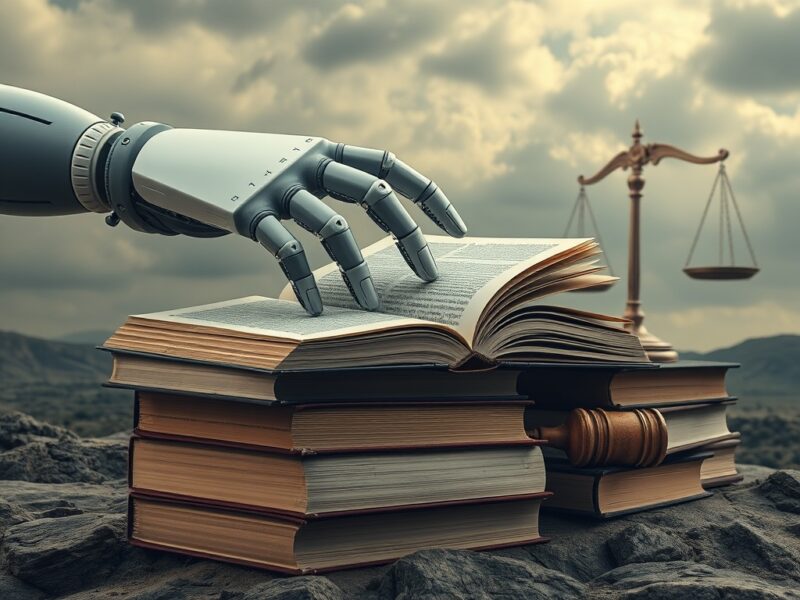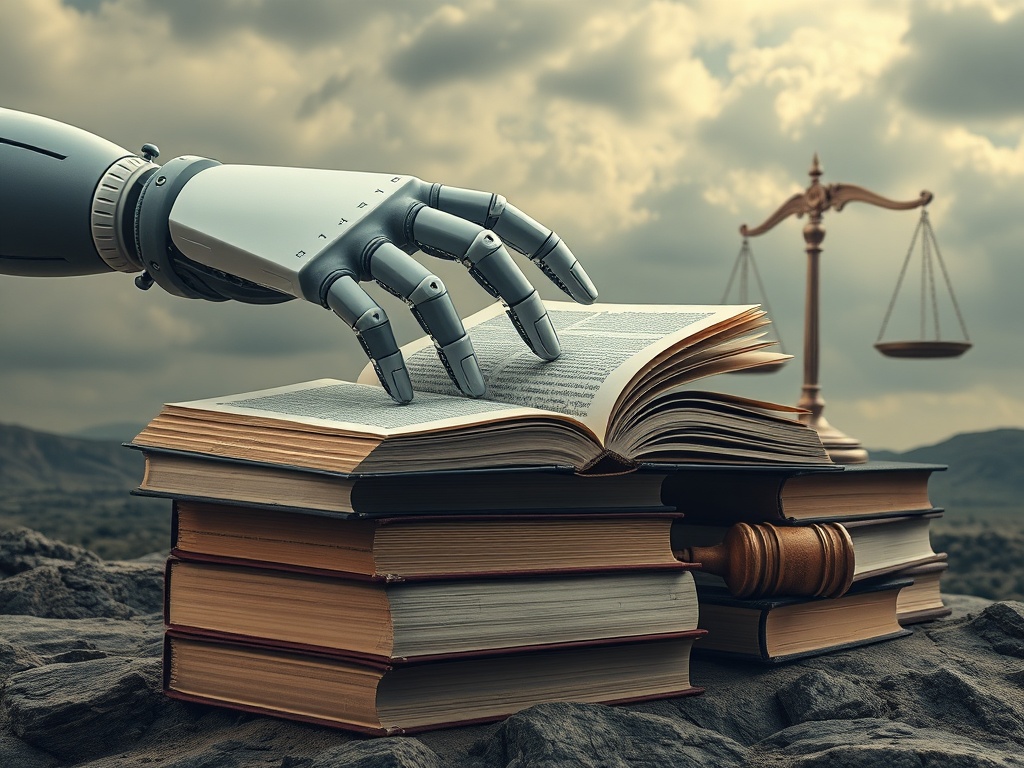AI Copyright: Anthropic’s Alarming $1.5 Billion Settlement Sparks Debate on Writers’ Rights
0
0

BitcoinWorld

AI Copyright: Anthropic’s Alarming $1.5 Billion Settlement Sparks Debate on Writers’ Rights
In the rapidly evolving world where technology intersects with creativity, a recent development has sent ripples across the tech and literary landscapes. While the cryptocurrency space often focuses on digital assets and blockchain innovations, the underlying principles of ownership and value are equally crucial in the realm of intellectual property. A historic Anthropic settlement, valued at an astounding $1.5 billion, has captured headlines, promising a payout to nearly half a million writers. This landmark agreement, emerging from a class action lawsuit against AI giant Anthropic, initially appears to be a monumental victory for creators. However, a deeper dive reveals a more complex narrative, raising critical questions about the true state of writers’ rights in the age of advanced artificial intelligence.
Understanding the Anthropic Settlement: A Closer Look at the $1.5 Billion Payout
The headline figure of $1.5 billion is undeniably staggering, marking the largest payout in the history of U.S. copyright law. This settlement stems from a lawsuit, Bartz v. Anthropic, where a collective of authors accused Anthropic, the company behind the Claude AI chatbot, of copyright infringement. The core of the accusation wasn’t just that Anthropic’s large language models (LLMs) were trained on their works, but specifically that the company illegally downloaded millions of books from “shadow libraries” — unauthorized online repositories — to feed its AI systems.
Here’s a breakdown of the key aspects of this unprecedented settlement:
- Historic Sum: $1.5 billion, the largest copyright settlement ever in the U.S.
- Beneficiaries: Around half a million writers are eligible for a minimum payday of $3,000 each.
- The Accusation: Anthropic was sued for pirating books from “shadow libraries” to train its AI.
- The Outcome: The settlement resolves the plaintiffs’ “legacy claims,” avoiding a trial focused on the piracy aspect.
While a significant sum, many argue this isn’t a true win for authors against AI training itself. Instead, it’s seen as a costly “slap on the wrist” for Anthropic for its illegal acquisition methods, rather than a definitive ruling on the legality of using copyrighted material for LLM training when legally obtained.
The Complex Landscape of AI Copyright and Fair Use
The distinction between illegal acquisition and the act of training AI on copyrighted material is central to this debate. In a separate, crucial ruling in June, federal judge William Alsup sided with Anthropic, stating that training AI on copyrighted material is indeed legal. The judge’s reasoning hinges on the “fair use doctrine,” a carve-out in U.S. copyright law designed to allow limited use of copyrighted material without permission for purposes such as criticism, comment, news reporting, teaching, scholarship, or research.
Judge Alsup’s interpretation of fair use in the context of AI is particularly noteworthy:
“Like any reader aspiring to be a writer, Anthropic’s LLMs trained upon works not to race ahead and replicate or supplant them — but to turn a hard corner and create something different,” the judge said.
This ruling suggests that AI training is “transformative” enough to fall under fair use. The fair use doctrine, which hasn’t been significantly updated since 1976, is now being applied to technologies that were unimaginable nearly fifty years ago. This interpretation has profound implications for the future of AI copyright, suggesting that as long as the AI’s output is “different” from its training data, the original works might be used without explicit permission or compensation.
Consider the stark difference between the two legal points:
| Legal Aspect | Judge Alsup’s Stance | Implication for AI Developers |
|---|---|---|
| Piracy (Illegal Acquisition) | Illegal, led to settlement | Must acquire training data legally (e.g., license, public domain) |
| AI Training on Copyrighted Material (Legally Acquired) | Legal under “fair use” (if “transformative”) | Can use copyrighted data for training if the output is sufficiently “transformative” |
This distinction highlights a critical loophole for tech companies: they must ensure their data acquisition methods are legal, but once acquired, the act of training AI on that data might be protected. This perspective worries many creators who see their work being used to build systems that could eventually replace them.
Are Writers’ Rights Truly Protected in the Age of LLMs?
The core concern for many writers extends beyond mere piracy. It’s about the fundamental value of their creative output in an ecosystem increasingly dominated by AI. Tech giants like Anthropic, Google, Meta, and OpenAI are in an arms race to amass vast quantities of written material to train their sophisticated LLMs. These AIs, which power products like ChatGPT and Claude, become more capable and nuanced with more data. After effectively scraping the public internet, these companies are constantly seeking new sources of information, leading to contentious practices like those seen with Anthropic’s “shadow library” use.
For writers, the implications are dire:
- Diminished Value: If AI can generate content based on their styles and themes without compensation, the perceived value of human-created work may decrease.
- Economic Threat: The rise of AI-generated content poses a direct economic threat to professional writers, potentially reducing demand for human authorship.
- Ethical Dilemma: Is it ethical for AI to “learn” from copyrighted works without permission or payment, even if the output is deemed “transformative”?
The settlement, while financially beneficial to some, doesn’t address the fundamental challenge to writers’ rights posed by LLM training. It merely punishes a specific illegal act of data acquisition, leaving the broader question of AI’s use of copyrighted material for training largely unchallenged by this particular case’s resolution.
Navigating the Future: Challenges and Actionable Insights for Creators
The Bartz v. Anthropic settlement sets a precedent, but its limited scope means the broader legal battle over AI and copyrighted works is far from over. Dozens of similar cases against major AI developers are currently making their way through the courts. Each ruling will contribute to shaping the future legal landscape.
The interpretation of fair use AI will continue to be a battleground. Creators and legal experts are advocating for:
- Updated Copyright Laws: A re-evaluation and modernization of copyright law to specifically address AI training and output.
- Licensing Frameworks: Development of clear, equitable licensing models for AI companies to compensate creators for the use of their work.
- Transparency: Greater transparency from AI developers about their training data sources.
- Advocacy: Continued collective action and advocacy from artist and writer communities to protect their intellectual property and livelihoods.
As Aparna Sridhar, Anthropic’s deputy general counsel, stated, “We remain committed to developing safe AI systems that help people and organizations extend their capabilities, advance scientific discovery, and solve complex problems.” While the pursuit of advanced AI is commendable, the method and impact on human creators must be carefully balanced. The ongoing legal battles are not just about money; they are about defining the future of creativity, ownership, and the very essence of human ingenuity in a world increasingly shaped by artificial intelligence.
The Anthropic settlement, while historic in its financial scope, serves as a stark reminder of the urgent need for clarity and robust protections for creators in the AI era. It highlights the critical distinction between legal data acquisition and the transformative use of copyrighted material for AI training. As more cases proceed, the legal and ethical frameworks governing AI and intellectual property will continue to evolve, hopefully leading to a more equitable future for human creativity.
To learn more about the latest AI market trends, explore our article on key developments shaping AI models features.
This post AI Copyright: Anthropic’s Alarming $1.5 Billion Settlement Sparks Debate on Writers’ Rights first appeared on BitcoinWorld and is written by Editorial Team
0
0
 Manage all your crypto, NFT and DeFi from one place
Manage all your crypto, NFT and DeFi from one placeSecurely connect the portfolio you’re using to start.





